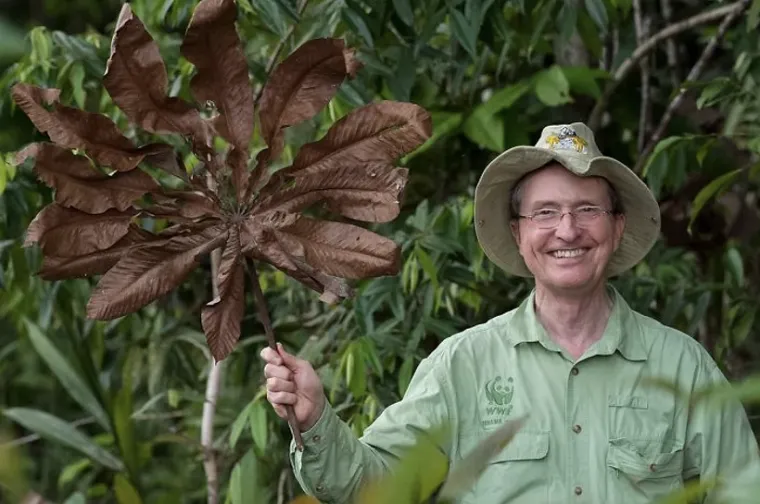Thomas E. Lovejoy
Dr. Thomas E. Lovejoy (1941-2021) is one of the most globally renowned ecologists of modern times, recognized by countless U.S. and international organizations for his life’s work. His scholarship in biodiversity, tropical forests, and climate change focused on how human activity causes habitat fragmentation, pushing biological diversity towards crisis.
Dr. Lovejoy conceived the idea of the Biological Dynamics of Forest Fragments (formerly the Minimum Critical Size of Ecosystems) project and is credited with introducing the term “biological diversity” (biodiversity) to the scientific community in 1980 along with Edward O. Wilson. He devoted much of his career to working in the Amazon, the world’s largest rainforest. For more than 40 years he conducted research, and brought visitors to Camp 41, part of the Amazon Biodiversity Center he founded near Manaus, Brazil in 1979.
In recognition of the value of his work, Dr. Lovejoy was an elected member of the U.S. National Academies of Sciences, and Fellow of the American Association for the Advancement of Science (AAAS). In 1998, Brazil awarded him the Grand Cross of the Order of Scientific Merit. In 2001, he was awarded the prestigious Tyler Prize for Environmental Achievement. He received over 50 Honors, including the Commandeur dans l’Ordre des Palmes Académiques by the Government of France (2014) and the Lifetime Achievement Award by th Global Council for Science and the Environment in 2017. In 2022, the National Geographic Society posthumously awarded Dr. Lovejoy the Hubbard Medal, the nonprofit’s highest honor.
He received his B.S. and Ph.D. (biology) degrees from Yale University, and was awarded honorary Doctorates at Colorado State University, Lynn University, and Williams College. He published 10 books, more than 300 peer reviewed publications and over 100 white papers and editorials. He advised producers of many documentaries and television programs and was founder of the public television series Nature, evidence of his understanding of the value of communicating science to the public.
Dr. Lovejoy advised national governments, international organizations, and corporations, and held more than 100 nongovernmental advisory and directorship roles. He served on science and environmental councils and committees under the Reagan, Bush, and Clinton administrations, and in senior roles at the UN Foundation, the World Bank, the Smithsonian Institutions, the U.S. Department of Interior, and the World Wildlife Fund, among others.
Examples of how his work linked science to policy and governance abound, with a notable one being the concept of Debt-for-Nature Swaps, which he conceived as a mechanism whereby environmental groups purchased risky foreign debt on the secondary market at a considerable discount. The debt was then converted at its face value into the local currency to purchase biologically sensitive tracts of land in the debtor nation for purposes of environmental protection.
Dr. Lovejoy was uniquely skilled at straddling all sectors of society, a skill that significantly magnified the awareness of the value to this and future generations of biological diversity, and the need for scientifically based good governance and policies to protect the life-supporting ecosystem services these provide. View Dr. Thomas E. Lovejoy’s CV.
Thomas E. Lovejoy passed away on December 25, 2021.

Dr. Thomas E. Lovejoy. Photo credit: Tom Slobodan Randjelovic.

